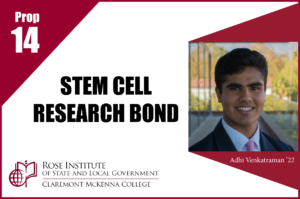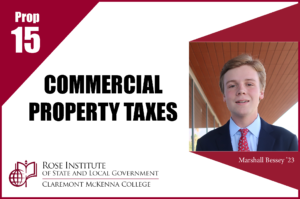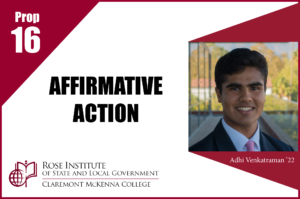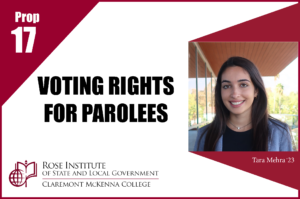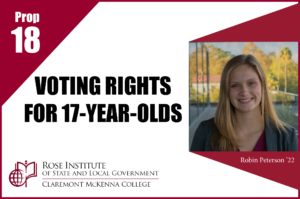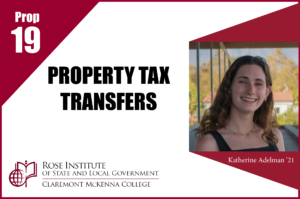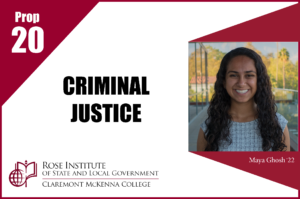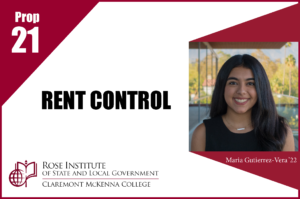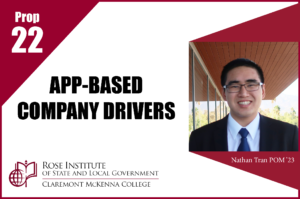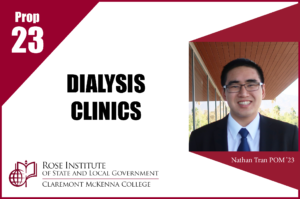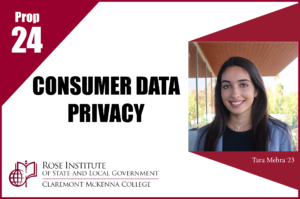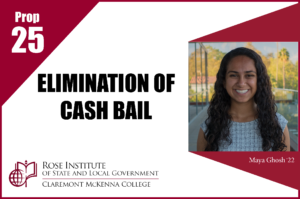A Guide to California’s Ballot Measures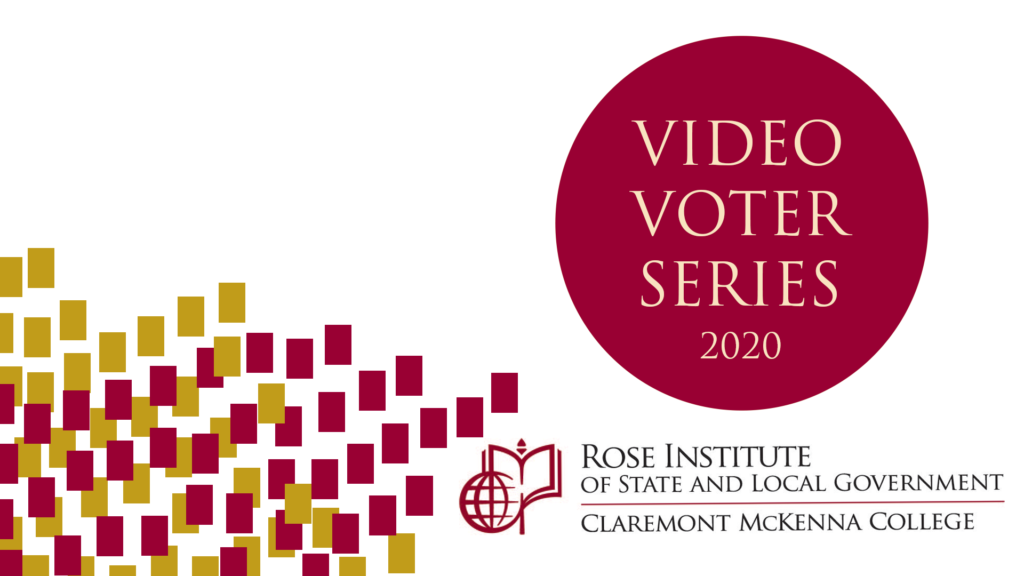
Californians are facing decisions on 12 statewide ballot propositions in November 2020. The Rose Institute of State and Local Government at Claremont McKenna College produced this online “Video Voter” series to give voters an objective, easy-to-understand guide to these propositions. In brief 2-3 minute videos, we present each measure’s basic purpose, major supporters and opponents, and arguments pro and con. We hope these videos help you make informed voting decisions.
Subtitles will be available soon for each video in English and Spanish.
List of Videos
Click above to view video
Proposition 14 seeks to issue $5.5 billion in new general obligation bonds for the California Institute for Regenerative Medicine (CIRM), with most of the funds dedicated to grants for organizations pursuing stem cell therapy-related research, training, delivery, or facility development. The initiative also would require the creation of a working group to improve access to treatment and cures, as well as the development of training programs and fellowships for students.
Researched and presented by Adhitya Venkatraman ’22
Click above to view video
Proposition 15 would create a “split roll” property tax system in California by requiring that owners of commercial and industrial properties worth more than $3 million be taxed based on the properties’ current market value rather than based on their purchase price. The resulting increase in commercial property taxes would generate new funds for local governments and schools.
Researched and presented by Marshall Bessey ’23
Click above to view video
Proposition 16 would repeal a 1996 state constitutional amendment requiring that “the state shall not discriminate against, or grant preferential treatment to, any individual or group on the basis of race, sex, color, ethnicity, or national origin in the operation of public employment, public education, or public contracting.” This measure would create a pathway for governments, public universities, and other public entities to develop and implement affirmative action programs on the basis of the above characteristics.
Researched and presented by Adhitya Venkatraman ’22
Click above to view video
Proposition 17 would amend the California Constitution to restore the right of persons convicted of a felony to vote after they are released from state prison and while they are still on parole.
Researched and presented by Tara Mehra ’23
Click above to view video
Proposition 18 would allow 17-year-olds to vote in primary and special elections if they will turn 18 years old by the time of the general election.
Researched and presented by Robin Peterson ’22
Click above to view video
Proposition 19 would change special property tax assessment rules for eligible homeowners and inherited property. It would expand an existing benefit for seniors, the severely disabled, and victims of wildfires and natural disasters, by letting them transfer the taxable value on their primary residence to a new property when they move anywhere in California. It would narrow the existing benefit for inherited properties. It also would create a fund dedicated to wildfire prevention and emergency response initiatives.
Researched and resented by Katherine Adelman ’21
Proposition 20 would make four changes to criminal justice statutes. It would increase penalties for certain theft-related crimes, change how people released from prison are supervised in the community, change the process considering the release of inmates from prison, and expand DNA collection by requiring law enforcement to collect DNA from adults convicted of certain misdemeanors.
Researched and presented by Maya Ghosh ’22
Proposition 21 would expand local governments’ authority to impose rent control measures on residential properties.
Researched and presented by Maria Gutierrez-Vera ’22
Click above to view video
Proposition 22 would designate app-based rideshare and delivery drivers as independent contractors, rather than employees. The measure would exempt drivers from AB 5, a recent state law that classified these workers as employees.
Researched and presented by Nathan Tran POM’23
Proposition 23 would establish new regulations for chronic dialysis clinics in California. The measure would require clinics to have a doctor present during treatment hours, to report data regarding dialysis-related infections to the California Department of Public Health (CDPH), and to obtain consent from the CDPH before closing clinics.
Researched by Maya Ghosh ’22 and presented by Nathan Tran PO’23
Proposition 24 seeks to strengthen consumer right to privacy under state law. Proposition 24 would amend existing consumer data privacy laws, create new consumer privacy rights, and establish the California Privacy Protection Agency to implement and enforce these rights. Proposition 24 also would change the rules that govern which businesses are covered by the law.
Researched and presented by Tara Mehra ’23
Proposition 25 is a referendum that gives voters the chance to approve or reject a recent decision by the legislature to abolish cash bail in California.
Researched and presented by Maya Ghosh ’22

